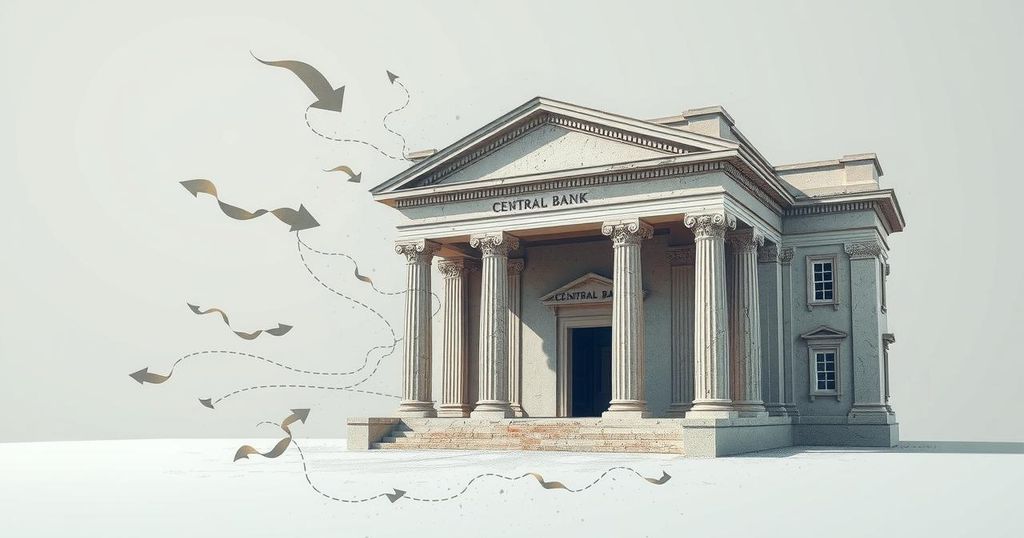U.S. sanctions under President Trump have triggered a severe economic crisis in Iran, causing the rial to reach an all-time low and inflation to soar. Public distrust has led to significant hoarding of foreign assets, with Iranians reportedly retaining $70 billion outside the official economy. The response to renewed sanctions has prompted divided opinions within Iranian leadership on whether to negotiate or escalate nuclear development.
The recent reintroduction of U.S. sanctions under President Donald Trump has severely impacted Iran’s economy, causing the Iranian rial to plummet to an unprecedented low of 858,000 rials per U.S. dollar on the black market. This economic downturn has prompted citizens to convert their assets into gold and foreign currencies, amidst mounting inflation and public distrust in the government’s management of the economy.
The rial’s steep devaluation, losing 55% of its value in the past year, is exacerbated by inflation rates, with official figures showing a 40% increase, although independent estimations suggest even higher numbers. The Iranian demand for U.S. dollars as a security measure has surged since the November elections, reflecting economic instability and rising prices for basic necessities.
Amidst these challenges, Gholamreza Mesbahi-Moghaddam revealed that Iranians have amassed approximately $70 billion outside the official economy, while the government seeks $5 billion in loans from international stakeholders. This significant amount emphasizes the growing discontent with state institutions and the public’s lack of faith in the banking system due to corruption and mismanagement.
While some Iranian officials, particularly those aligned with President Masoud Pezeshkian, are advocating for negotiations with the U.S. to alleviate economic strain, the ultraconservative factions view U.S. pressure as a justification to advance Iran’s nuclear program. The pivotal decision on whether to pursue diplomatic engagement or escalate nuclear activities lies with Supreme Leader Ali Khamenei.
The Iranian economy faces a precarious situation due to renewed U.S. sanctions, leading to currency devaluation, soaring inflation, and a deepening public crisis of trust. Calls for economic negotiations contrast sharply with hardline strategies that could further escalate tensions. The outcome of this internal debate will significantly affect Iran’s economic and political stability.
The article discusses the impact of President Donald Trump’s renewed sanctions on Iran’s economy, highlighting the dramatic devaluation of the Iranian rial and the resultant inflation. It examines public responses, including asset hoarding and rising distrust in government institutions, which have compelled the public to seek safety outside the formally regulated economy. Additionally, the article outlines the divided opinions among Iranian officials regarding possible negotiations with the United States and the implications for Iran’s nuclear program.
In conclusion, Iran’s economy is grappling with severe sanctions that contribute to the rapid devaluation of its currency and escalated inflation. Amid public discontent and loss of faith in the government, a substantial amount of wealth has been relocated outside the formal economy. The conflicting internal opinions on how to respond to U.S. pressure will greatly influence Iran’s future economic strategies and regional relations.
Original Source: www.ynetnews.com




